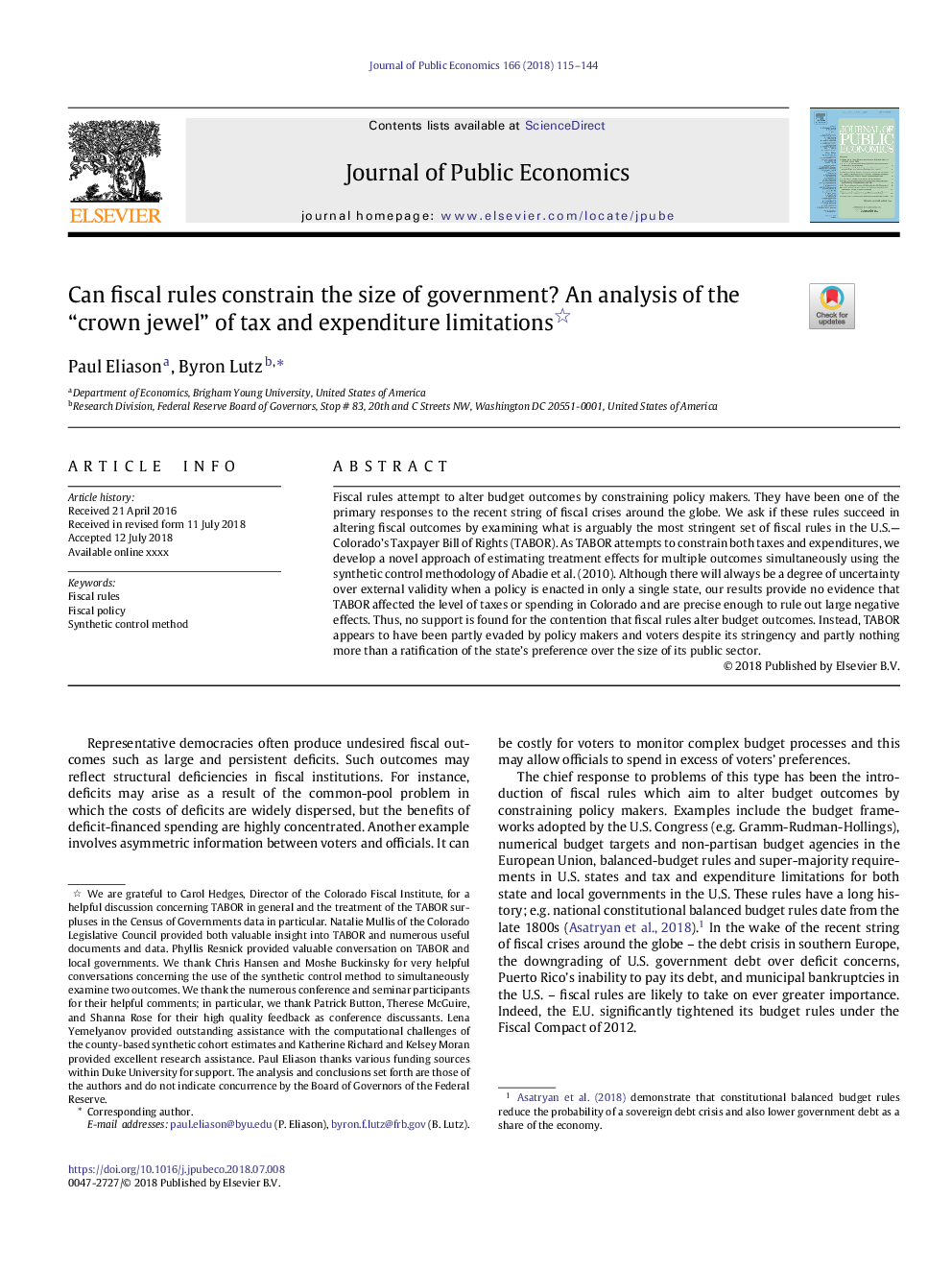| Article ID | Journal | Published Year | Pages | File Type |
|---|---|---|---|---|
| 11032876 | Journal of Public Economics | 2018 | 30 Pages |
Abstract
Fiscal rules attempt to alter budget outcomes by constraining policy makers. They have been one of the primary responses to the recent string of fiscal crises around the globe. We ask if these rules succeed in altering fiscal outcomes by examining what is arguably the most stringent set of fiscal rules in the U.S.-Colorado's Taxpayer Bill of Rights (TABOR). As TABOR attempts to constrain both taxes and expenditures, we develop a novel approach of estimating treatment effects for multiple outcomes simultaneously using the synthetic control methodology of Abadie et al. (2010). Although there will always be a degree of uncertainty over external validity when a policy is enacted in only a single state, our results provide no evidence that TABOR affected the level of taxes or spending in Colorado and are precise enough to rule out large negative effects. Thus, no support is found for the contention that fiscal rules alter budget outcomes. Instead, TABOR appears to have been partly evaded by policy makers and voters despite its stringency and partly nothing more than a ratification of the state's preference over the size of its public sector.
Related Topics
Social Sciences and Humanities
Economics, Econometrics and Finance
Economics and Econometrics
Authors
Paul Eliason, Byron Lutz,
